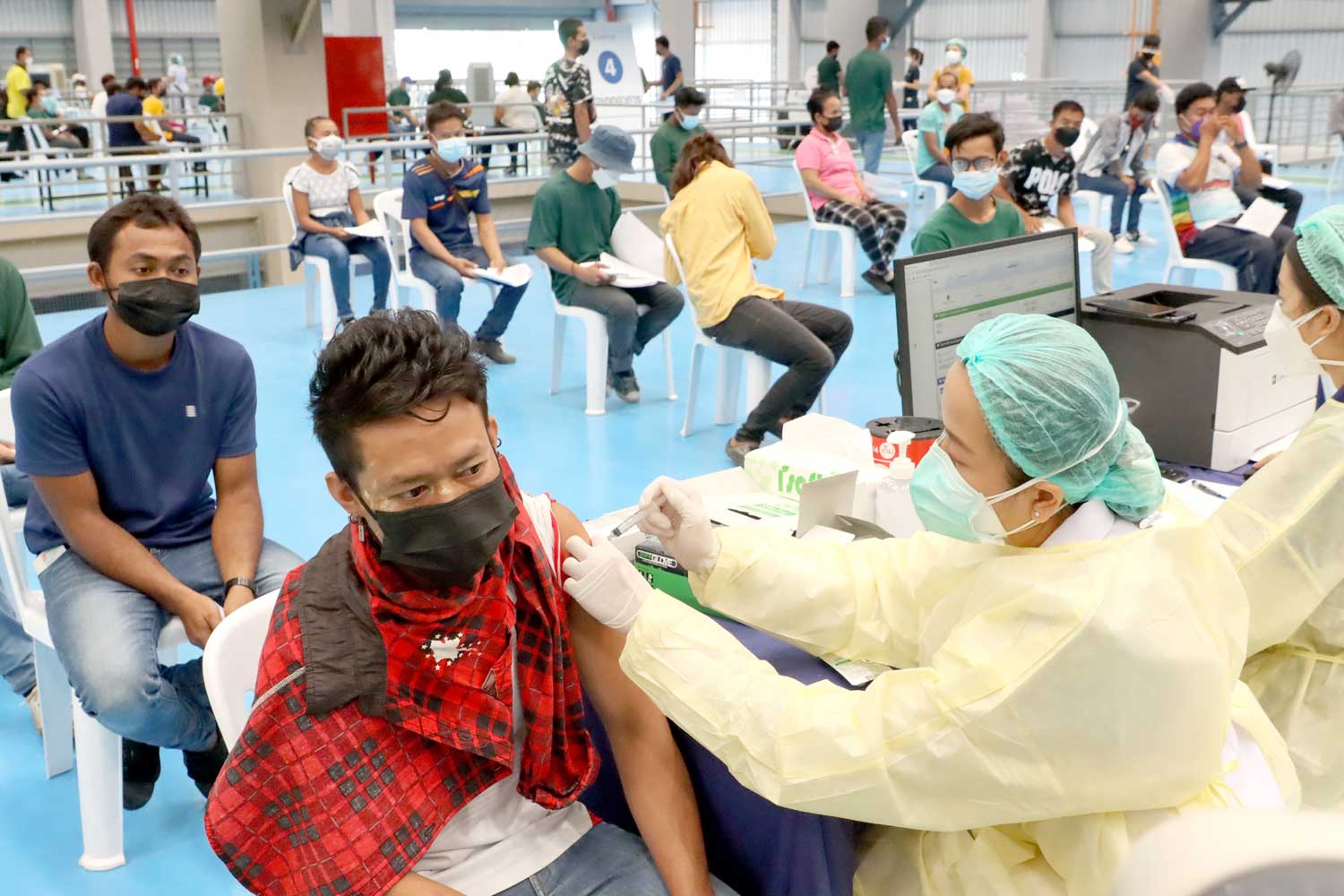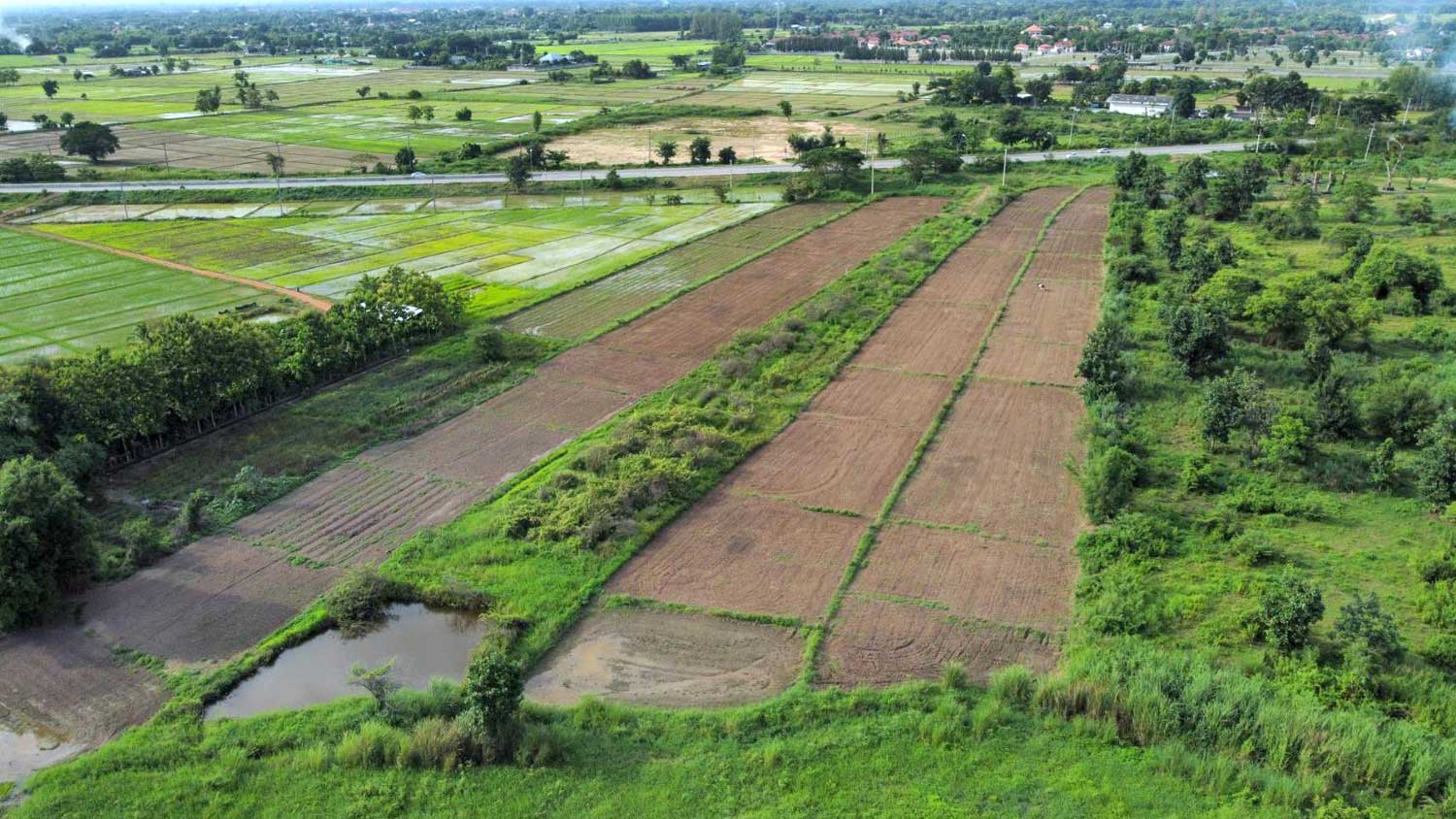
Sansiri steps up to the plate to help save the country from Covid
From staff to customers, farmers to small businesses, and workers to elephants, the initiatives of Sansiri Plc—one of Thailand’s leading developers—are pledging to leave no one behind.
“The social impact from the pandemic is very huge. There are those vaccinated and those unvaccinated,” says Srettha Thavisin, CEO of Sansiri. “Even with a fundamental right to a public health system, many groups of people struggle for access.”
“These inequalities are being highlighted and widened by the Covid-19 pandemic,” he adds. “Even when the outbreak ends and the economy recovers, the inequalities will continue to run deeper and deeper.”
“If the economy improves but the inequalities do not, the country will lose. So it is our duty as a strong firm to help, donate, and support those weaker.”
To reduce the inequalities, including vaccine and public health system access, Sansiri early last year initiated the ‘No One Left Behind’ project around four social pillars with a budget of 100 million baht.

Some 40 million baht was spent in June this year to buy 37,000 doses of Sinopharm Covid-19 vaccine to vaccinate all Sansiri staff as well as staff families, business partners, communities and those impoverished.
Recently, Sansiri spent 10 million baht to book 6,000 doses of Moderna vaccine, an mRNA vaccine, as a booster dose for its staff, totalling 6,000 people. Inoculations will start in early 2022.
During the first lockdown last year, Sansiri supported its customers whose businesses have been impacted by the pandemic. One of the activities was to allocate over 100 food truck spaces inside Sansiri’s more than 40 residential projects for parking and serving customers in the projects.
As food truck owners’ businesses could continue to operate during the lockdown, residents at Sansiri projects could have access to a variety of menus near their homes.
The company also added Sansiri Family Market, a new feature in its Home Service application, where members can post items to promote and sell. Some customers who were struggling with business due to the outbreak crisis asked Sansiri via its call centre whether there were any channels to sell their products and a new idea to help popped up.
“SMEs are the first group feeling a strong impact from the pandemic, as exports and tourism sectors seized up,” Srettha says. “Though many of them have adjusted, the impact on the overall economy will be great if the pandemic is prolonged.”
As SMEs are a vital cog in the economy, since last year Sansiri has partnered with Siam Commercial Bank (SCB) to offer assistance. One assistance measure is to help SMEs generate more income by purchasing products from small businesses.
Last year, Sansiri helped more than 900 businesses by spending 4 billion baht to buy their products. This year, Sansiri targets spending 6 billion baht to purchase products from more than 1,500 SMEs.
Sansiri and SCB also created sales channels via each of their online channels and Sansiri’s Home Service application that has over 100,000 family members.

The developer built new markets on leading e-Commerce platforms, including NocNoc.com, Robinhood and WeChef. It also bought food and gave it to the medical teams and volunteers at Bang Sue Grand Station Vaccination Centre.
In May this year, Sansiri and 29 business partners and suppliers built 380 bathrooms costing 8 million baht for Covid-19 patients and 40 modular bathrooms costing 800,000 baht for the medical team at Bussarakam Hospital’s field hospital.
As the number of new infections escalated, Sansiri helped build ICU units with 17 beds at Bussarakam Hospital. Amazingly, the project was completed in just six days.
Sansiri also bought farm produce to help farmers experiencing a fall in agricultural prices and sent the purchases to communities affected by Covid-19. For example, 10 tonnes of watermelon from farmers in Kalasin was distributed to communities and four tonnes were delivered to over 1,000 families living at Sansiri projects.

Sansiri also purchased roughly six tonnes of mangos for elephants in Chiang Mai facing hardship due to the collapse in tourism.
“Elephant shows have no income because there are no tourists. If no one helps them, they cannot survive, as elephants eat a lot,” says Mr Srettha. “To help them in the long run, we are using some land we have in Chiang Mai and getting local people to plant
napier grass there to feed the elephants.”
In one year, the ‘Sansiri Backyard for Elephants’ campaign on 70 rai in Chiang Mai will produce around 20,000 tonnes of napier grass, enough to feed elephants everywhere in the northern region.
In Greater Bangkok, Sansiri has supported construction worker camps that were temporarily locked down during Covid-19 cluster outbreaks. Fifteen camps received fruit and vegetable seeds to plant to both help feed the workers and give them a less stressful pastime.
Over 4,000 Thai and foreign workers at more than 75 camps received assistance from Sansiri, including survival bags and Sinopharm vaccines. Eight of the camps got a playing field.
“No one should be forgotten or abandoned,” says Mr Srettha. “I want to call out strong firms like us to step up and take part in helping society and those weaker. The No One Left Behind mission has to be a national agenda.”

BURB
IF THE ECONOMY IMPROVES BUT THE INEQUALITIES DO NOT, THE COUNTRY WILL LOSE. SO IT IS OUR DUTY AS A STRONG FIRM TO HELP, DONATE AND SUPPORT THOSE WEAKER.